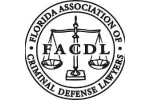to Save Yours
Structuring
An allegation of a Federal structuring charge is a white-collar crime alleging that someone has deposited money in a fashion so as to avoid certain bank reporting requirements. Also known as smurfing, the act of structuring involves a series of smaller bank deposits made in place of a single bank deposit that would amount to more than $10,000. For example, if someone has $50,000 in cash to deposit in their bank, should they choose to deposit it through five deposits of $9,999 and one deposit of $5, with the intent to avoid the reporting requirement, they have committed the crime of structuring. The intent in a structuring scheme is to avoid the bank filing a Currency Transaction Report (CTR) under the Bank Secrecy Act or an IRS Form 8300 which is required to be filed by a nonfinancial trade or business. The policy behind the requirement of filing a CTR or a Form 8300 is so that the government can keep tabs on financial transactions of individuals and to ferret out money laundering schemes, tax evasion efforts, illegal gambling operations, and drug traffickers.
what is structuring?
Structuring is governed by Federal Statute 31 USC 5324 and states in pertinent part that, no person shall for the purpose of avoiding a financial transaction reporting requirement, cause or attempt to cause a domestic financial institution or nonfinancial trade or business to fail to file a required financial report. A conviction for structuring carries with it a maximum of 5 years in the Federal Bureau of Prisons, a fine, and quite often the draconian process of having their assets forfeited assuming the government can show a nexus between those assets and the crime of conviction. Defined in the 11th Circuit Criminal Jury Instructions, to structure “a transaction means to deposit, withdraw, or otherwise participate in transferring a total of more than $10,000 in cash or currency using a financial institution or bank by intentionally setting up or arranging a series of separate transactions, each one involving less than $10,000, in order to evade the currency-reporting requirement that would have applied if fewer transactions had been made.”
Can a Federal Structuring Charge be Defended?
Though every criminal allegation is different, an allegation that one has structured funds relies on the United States being able to prove that the person knowingly structured a deposit and that the intent of the structure was to avoid transaction-reporting requirements. For arguments sake, if one has been given $50,000 in the form of six checks drawn on different accounts from a payor and the checks are deposited by the payee to their account, it could be argued that the payee didn’t knowingly structure any of the deposits as the payee simply deposited the funds in the form they were received. In this example there would be no knowing structure. Conversely, if the payee requested six separate checks totaling $50,000 for the purpose of knowingly structuring the deposit, a Federal criminal attorney may have a tough time defending their client against a structuring allegation. Another scenario could be the individual who makes a small number of deposits of cash into a bank account from a larger pool of money. Due to a fear of transporting a large sum of money, an individual may make numerous smaller deposits as a precaution against potential robbery. If the person had no intent to structure or had no knowledge of the currency transaction report requirement, the person may have a viable defense against a structuring charge. In this scenario, the larger the number of deposits made, the more difficult the case would be to defend.
Contact Us
If you’ve been charged with a Federal crime, it is imperative to hire an experienced and knowledgeable Tampa Federal criminal lawyer as soon as possible. Often the outcome of Federal criminal cases turn on the speed at which the allegations are addressed and the course of action taken. Federal criminal attorney Jason Mayberry is available at 813-444-7435 or 727-771-3847. We look forward to hearing from you.














